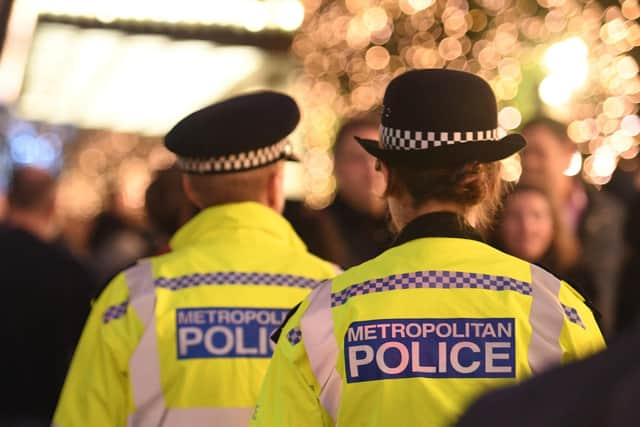What is misogyny? What Boris Johnson said about hate crime law changes
In March of this year, MSPs voted to pass a controversial new hate crime bill, creating new offences of “stirring up hatred”.
Now, as the sentencing of Wayne Couzens in the Sarah Everard case is finalised, misogyny may become a stand alone offence in Scotland or be added to existing hate crime legislation.
Advertisement
Hide AdAdvertisement
Hide AdAccording to the annual Scottish Crime and Justice Survey this year, woman are four times more likely to be victims of serious sexual assault.


To understand what the proposed hate crime law amendments are intended to do, here's what misogyny is and what changes are being discussed.
What is misogyny?
Misogyny is a form of sexism, used as a catch-all term for hatred or contempt for women and girls.
It can present itself in a variety of ways, but for the purposes of the hate crime law, would be applied when someone commits a crime because of prejudice against women,
Campaigners, including Citizens UK, Refuge, and Women’s Aid, argue that misogyny is the root cause of violence against women and therefore sex and gender should be added to hate crime legislation.
What changes to hate crime laws are being proposed in Scotland?
Unlike England and Wales, which don’t have any existing hate crime laws, some Scottish MSPs are arguing for updates to be made to existing hate crime legislation.
Namely, serious misogynistic harassment would be made a standalone offence.
Baroness Kennedy, chair of the Working Group on Misogyny and Criminal Justice in Scotland, plans to make a report on misogyny in Scotland in February.
Advertisement
Hide AdAdvertisement
Hide AdShe and other campaigners are calling on Police Scotland to tackle sexism and misogyny within the police force as a matter of urgency.
What did Boris Johnson say about the hate crime law?
South of the border, similar discussions are at play, with campaigners pushing for misogyny to be listed as a specific hate crime.
Currently, although England and Wales do not have existing hate crime legislation, when a crime is committed because of race, religion, sexual orientation, disability, or transgender identity, judges have enhanced sentencing power and can increase the sentence accordingly.
Making misogyny a hate crime would mean that crimes committed due to prejudices against women and girls would also fall into this category.
However, Prime Minister Boris Johnson has ruled out making any such changes when asked about the proposal on BBC Breakfast, stating that “the number one issue is policing”.
“Rather than introducing new laws, what you need to do is enforce the existing laws,” continued Mr Johnson. “To be perfectly frank, if you simply widen the scope of what you ask the police to do, you’ll just increase the problem. What you need to do is get police to focus on the very real crimes, the very real feeling of injustice and betrayal that many people feel.”
The Prime Minister also went on to say that he believes having more female police officers would help to tackle the issue.
Reportedly, most chief constables in England have supported making misogyny a hate crime, with the main opposition being Scotland Yard.
